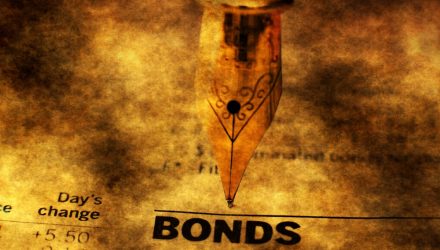The Federal Reserve’s pledge to purchase more corporate bonds to help shore up the economy is putting exchange-traded funds (ETFs) that cater to corporate debt on fixed income investors’ want lists. The versatility and liquidity of an ETF allow investors to add corporate bond exposure to their portfolios without purchasing the actual debt itself.
“You’re getting, basically, a yield pickup with an equity-like, in your term, risk profile,” said DataTrek Research co-founder Nick Colas on the CNBC segment “ETF Edge.”
“It’s important to understand, though, that the Fed chose the investment-grade market to backstop and not the high-yield market,” Colas said. “So, for investors looking for some yield but wanting that bigger backstop, then the investment-grade side is the way to go.”
That said, here are a few funds to consider that cater to investment-grade debt:
- SPDR Portfolio Short Term Corp Bd ETF (NYSEArca: SPSB): SPSB seeks to provide investment results that correlate with the Bloomberg Barclays U.S. 1-3 Year Corporate Bond Index. Once again, O’Leary would benefit from the reduced exposure to volatility with SPSB’s investment in shorter-duration debt with maturities less than three years. In addition, SBSP minimizes credit risk by constructing a debt portfolio that contains only investment-grade bonds with companies that are less likely to default.
- ProShares Investment Grade—Intr Rt Hdgd (BATS: IGHG): IGHG tracks the performance of the Citi Corporate Investment Grade (Treasury Rate-Hedged) Index so it invests in long positions in USD-denominated investment-grade corporate bonds issued by both U.S. and foreign domiciled companies and short positions in U.S. Treasuries. O’Leary likes to minimize downside risk, so he would probably prefer a corporate bond ETF with a debt portfolio in investment-grade bonds, which is where IGHG invests 80% of its capital. Investment-grade allows investors to mitigate credit risk by allocating capital towards debt issues that are less likely to default versus less-than-investment-grade issues.
- Vanguard Short-Term Corporate Bond ETF (NASDAQ: VCSH): VCSH tracks the performance of a market-weighted corporate bond index with a short-term dollar-weighted average maturity–the Bloomberg Barclays U.S. 1-5 Year Corporate Bond Index. VCSH debt holdings mirror those found within the index, so U.S. dollar-denominated, investment-grade, fixed-rate, taxable securities issued by the industrial, utility, and financial companies comprise the debt portfolio. Furthermore, in order to curb volatility in the bond markets, maturities are relatively short-duration issues–between 1 and 5 years until maturity.
A High Yield Option
For the not-so-risk-averse investors looking for a corporate bond option with an extra kick of yield, they can take a look at the Xtrackers USD High Yield Corp Bond ETF (NYSEArca: HYLB). Xtrackers USD High Yield Corporate Bond ETF (the “Fund”) seeks investment results that correspond generally to the performance, before fees and expenses, of the Solactive USD High Yield Corporates Total Market Index.
For more market trends, visit ETF Trends.
